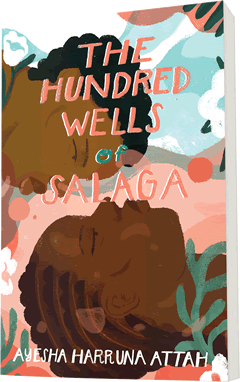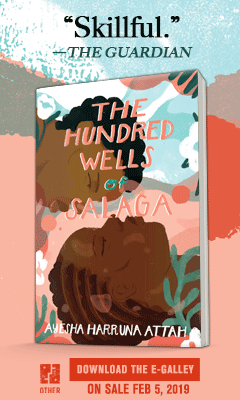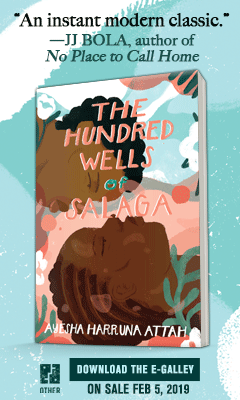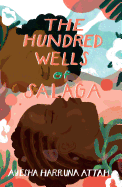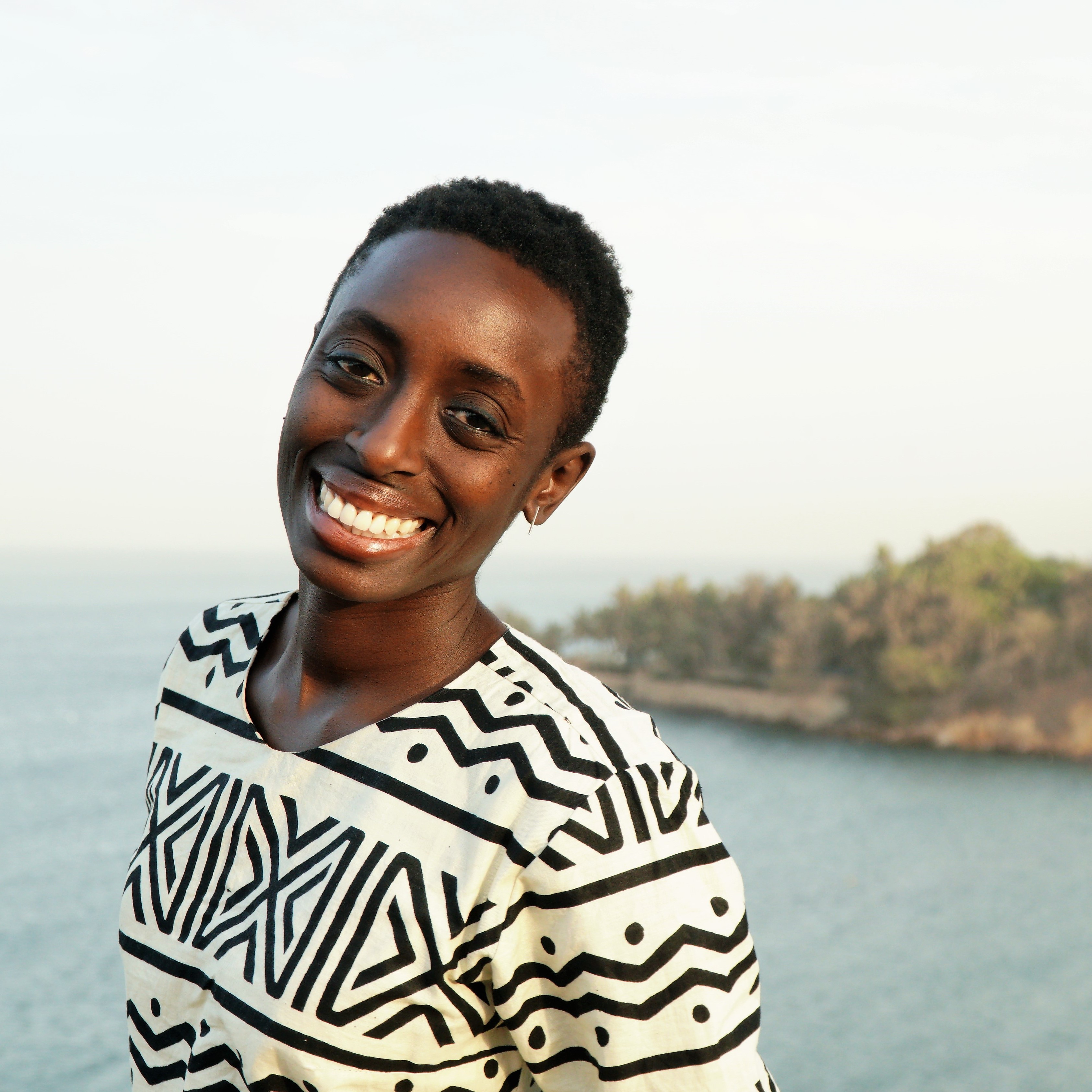The Hundred Wells of Salaga
by Ayesha Harruna Attah
In precolonial Ghana, Wurche and Aminah come from very different walks of life: Aminah is the eldest child of a shoemaker in Botu, and Wurche is royalty, the daughter of a Kpembe chief. But, in both women, author Ayesha Harruna Attah convincingly creates strong, independent spirits who push the boundaries of the society in which they live. The slave trade brings the two together in Attah's moving novel The Hundred Wells of Salaga, and they fight to survive a period of conflict and upheaval.
Aminah is a daydreamer. While her friends vie to be a 21st wife, she fantasizes of more--she would prefer to travel and sell shoes, like her father. Instead, Botu offers Aminah a predictable life. During the dry season, Sokoto caravans visit the village, as illustrated in Attah's vivid description:
"Camels and their riders filed by, moving almost in tandem with the beat of the drums, followed by women balancing enormous cloud-shaped bundles on their heads. They were trailed by donkeys saddled with sky-high loads, then porters, pitiful-looking men and women burdened with baskets and pans, wearing nothing but strips of cloth covering their private parts."
The caravans provide Aminah's family with a source of income. They cook and sell food to the travelers. And when the caravans leave, Aminah's father follows along to sell his shoes.
But the predictable is abruptly halted when her father doesn't return. Then horsemen invade Botu in the night. Vulnerable in an already hostile landscape, Aminah and her sisters are kidnapped and sold into slavery. Attah's depiction of this heartbreaking scene is authentic and emotional, striking readers in the depths of their humanity.
Like Aminah, Wurche doesn't want to be relegated to the traditional female roles--she wants to participate in the politics of the tribes with her father. "Anything her brother did, Wurche felt she should be given the chance to try." And while her father indulges her, he doesn't go so far as to include her in the governing process or give her a gun, like he does with his sons. Wurche eschews the idea that she will soon have to marry, despite the growing number of people pushing for it, including her grandmother. "What she most desired was to help lead her people, the Gonjas. She hadn't been named Wurche for nothing. Queen. The original Wurche led a battalion of three hundred men to safety. That such a woman had existed two hundred years before she herself was born should give her hope."
Unfortunately, her hope is extinguished when her father arranges a union to secure the support of the Dagbon people in the inevitable intertribal war--the tribal leader has died and various factions are battling for the throne. Wurche soon finds herself trapped in an unhappy marriage.
The worlds of Aminah and Wurche collide when the princess sees the slave in the Salaga market. Wurche learns the clandestine lover who recently spurned her was supposed to buy Aminah. In a fit of jealousy, Wurche purchases her instead, despite the royal's growing opposition to owning people. The two maintain their roles of possessor and chattel, but develop a relationship of mutual respect, eventually striking out on their own in a neighboring village and supporting themselves.
Attah's independent, female protagonists will engage readers in this heart-wrenching look at a system that devalued women's potential, from the most highly regarded all the way down to the slaves. Aminah and Wurch defy odds because of their strength and intelligence, and readers won't be able to help but wonder what they may have accomplished had they been untethered from society's shackles.
Attah's striking imagery illustrates her love of the country and its people, but she also doesn't shy away from the ugliness of the slave trade she's writing about:
" 'Why are there so many wells here?' asked Aminah.
'They were built to wash slaves after long journeys,' said Wurche.
A town created to sell human beings, thought Aminah. A town like that could not prosper. It was probably why Salaga had suffered so many wars."
Contrasting the grisly scenes of human bondage, Attah confronts the idea of beauty and what it means. Aminah, who is regularly viewed as beautiful but is unaware of her own allure, stands as a symbol in the novel. When another slave tells Aminah she is beautiful, she thinks, "Otienu had carved her body. He could have chosen a tree for her spirit. She didn't pick her body or create her beauty, so it felt almost dishonest to thank people for something she didn't do." But the beauty Attah creates inside Aminah radiates through her every action and word.
The dichotomy of The Hundred Wells of Salaga makes for an alluring story. It is at once horrific and resplendent. Attah honestly relates an appalling part of Ghana's history while weaving in hope and light, with commanding characters capable of initiating change. This is a novel with the power to open eyes and hearts while filling minds with plenty of food for thought. --Jen Forbus, freelancer



